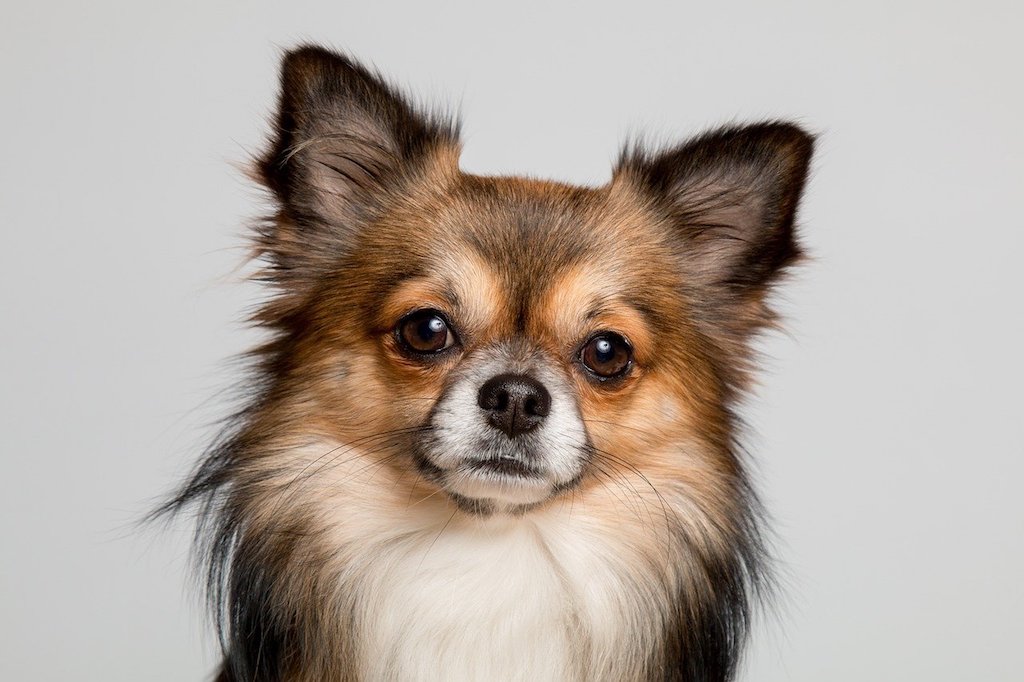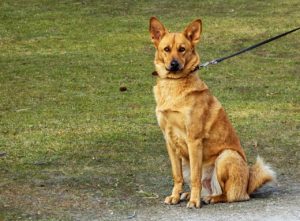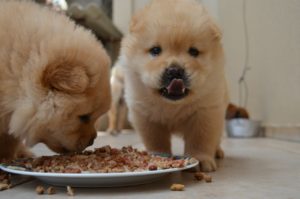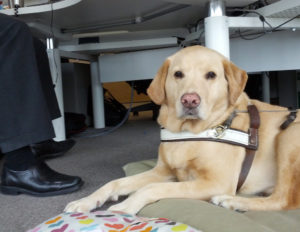Description
Chihuahuas, one of the world’s smallest breeds of dog, have a compact well-proportioned body. Although tiny in size, the Chihuahua is a muscular and athletic dog. Full of energy, Chihuahuas love to play and exercise, but their small size makes it easy to fulfil these needs even within the confines of city apartment.
This tiny breed has a very distinctive and expressive face, with a dainty pointed muzzle, huge round eyes and large mobile ears. The skull shape may be rounded, often described as an ‘apple’ head, or alternatively it may be sloped – a ‘deer’ head.
Chihuahuas come in two coat types — smooth coat and long coat. Their coat can be any solid color or combination of colors, including fawn, chocolate and white, black and tan, or blue and red.
Chihuahuas may be tiny, but they have huge personalities! These little dogs are feisty, opinionated and mischievous, which can make training them a challenge. They are also exceptionally lovable, and tend to be loyal to their own particular human rather than people in general. Because of this, Chihuahuas can be a bit yappy when meeting new people – leading to them often being labelled as ‘a big dog in a small dog’s body’!
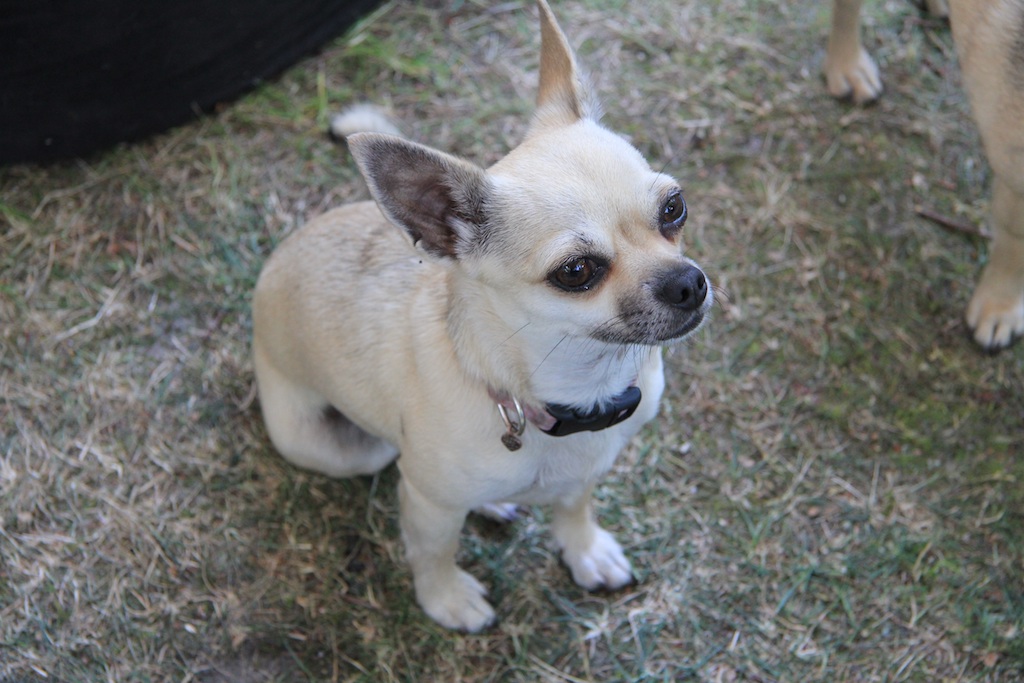
Common health problems
Unfortunately, in common with many pedigree breeds, Chihuahuas are predisposed to several health problems:
Epilepsy
Chihuahuas can suffer from neurological conditions affecting the brain, spine or nerves. Epilepsy is a brain disorder that results in seizures or fitting. These seizures are generally not painful but can be distressing for both dog and owner. Depending on the severity, these seizures may need to be controlled with lifelong medication.
Dental Disease
Like other toy breeds, Chihuahuas are prone to dental disease. Dental disease occurs when food and bacteria build up along the gum line, causing tartar to develop. Chihuahuas have small mouths, making them more prone to dental overcrowding and creating the perfect conditions for tartar to develop.
As dental disease develops, small spaces can form between the gums and the teeth. This can lead to inflammation of the tooth’s deep supporting structures. If left untreated, bacteria from infected gums can spread around the body and cause liver and kidney disease. Dental disease can be prevented by brushing the teeth frequently and regular dental descales.
Luxating Patella
The patella is a small bone which sits in a groove at the end of the femur. Patella luxation occurs when this bone pops out of the groove, which can be very painful for the dog. This condition is more common in Chihuahuas and occurs when the alignment of the bones of the hind leg is not quite straight, pulling the patella to one side. Surgical treatment may be required to reduce the likelihood of arthritis and enable the dog to live a normal life.
Tracheal Collapse
The trachea is the tube through which air is transported to and from the lungs. This tube is held open with cartilage rings, however in some Chihuahuas the tracheal rings begin to collapse. This partially closes the trachea, meaning air has to be squeezed through, causing the dog to develop a characteristic honking cough. If the breathing is severely compromised then surgical treatment may be required.
Heart Disease
Chihuahuas are particularly prone to disease of the heart valves, which often leads to heart failure. Symptoms are normally first seen when exercising, and include excessive panting, coughing, and tiring quickly. Early diagnosis of heart problems is very important. If they progress to full heart failure, treatment will be needed for the rest of the dog’s life.
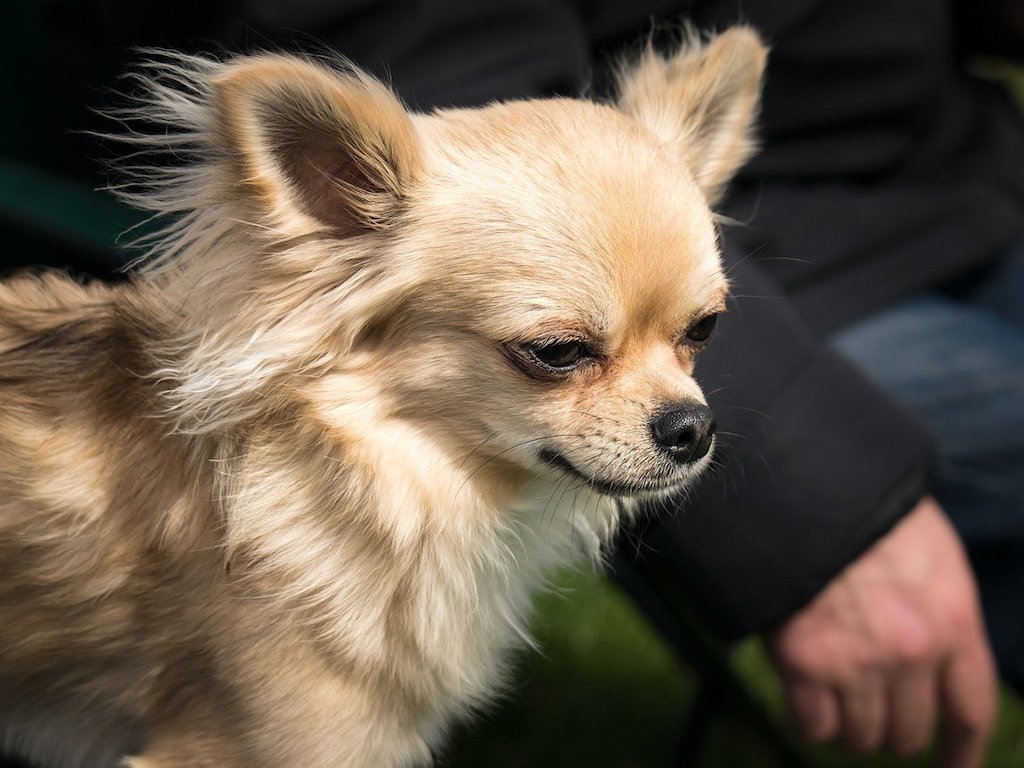
Personality traits
Any Chihuahua owner will tell you what huge personalities these dogs have! Often described as stubborn, wilful and sassy, they can be a challenge to train but are intelligent and capable of learning.
Chihuahuas are fiercely loyal and protective of the people they love, and often have one favorite person in the household. They may ‘guard’ this person from other people and dogs. Chihuahuas can be great with children, but care must be taken to avoid accidental injury through rough play. Do not allow young children to play with these tiny dogs.
Chihuahuas normally get along well with other cats and dogs. It is not unusual for Chihuahuas to be dominant over larger dogs, however this seldom causes issues due to their tiny size.
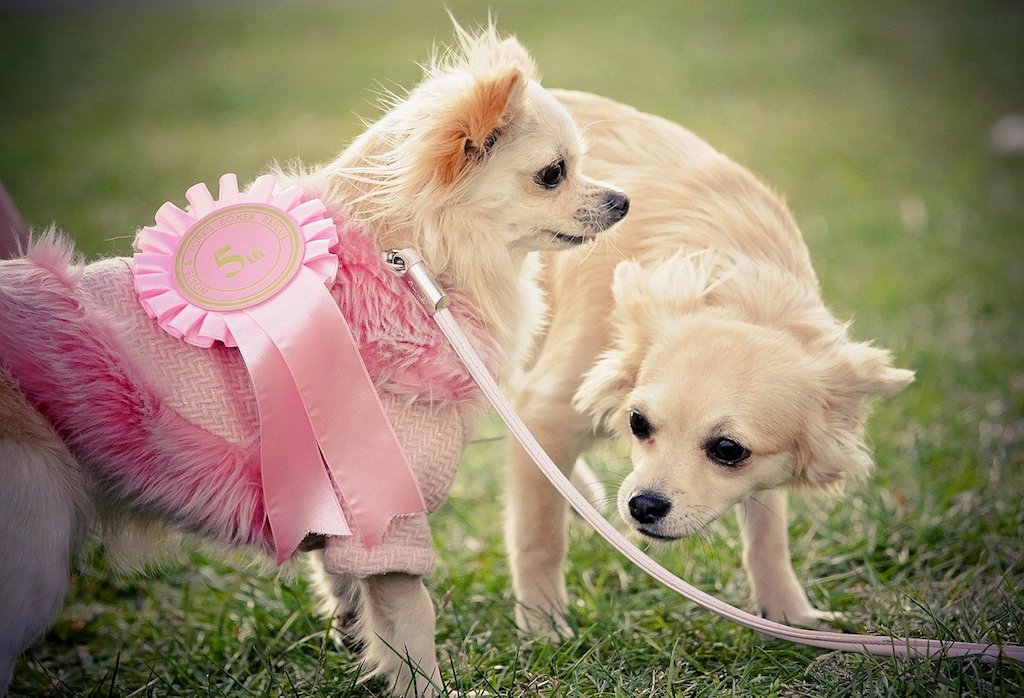
Care
Chihuahuas are generally quite easy to care for. They are energetic little dogs but can use a lot of energy just playing around the house. Their most important need is human company and mental stimulation. They do however have some specific care needs to help prevent health problems:
Grooming
For short coated Chihuahuas, a weekly groom with a rubber grooming mitt or a brush with short, natural bristles will be sufficient to remove loose hair and keep the skin healthy. Long haired Chihuahuas will benefit from twice-weekly grooming with a pin brush to remove tangles.
Keeping the eyes and ears clean will help to prevent infections. Ensure that the nails are trimmed regularly to keep them healthy. Brushing the teeth frequently will help to maintain good dental health and prevent dental disease.
Feeding
For miniature breeds like Chihuahuas, it is important that you measure their food intake carefully to prevent obesity. Due to their small size, an adult Chihuahua’s weight can easily creep up with even just a tiny amount of overfeeding. Feed a high-quality pet food twice daily, using the information on the food packaging to calculate portion sizes. Keep food rewards and treats to a minimum – one tiny treat such as a slice of ham would be the equivalent of a human eating a burger as a snack!
Training
Chihuahuas can be a challenge to train – they are keen to please but also wilful and stubborn! Keep your training sessions fun and reward-based; Chihuahuas respond well to positive training practices. Chihuahuas can excel in sports such as agility and obedience. One of the best tips when training a Chihuahua is to exploit their inquisitive nature – they love to play and solve puzzles!
Socialisation training is important from an early age. As soon as your new Chihuahua puppy is settled into your home they should start to meet different people, and new dogs can be introduced once your puppy is safely vaccinated. It is also important to start toilet training from a young age.
Exercise
Chihuahuas are often kept as city or apartment dogs – this is not because they have low exercise requirements, but they can expend a lot of this energy just playing in the home! They can be quite happy bouncing up onto the furniture or entertaining themselves with toys. Indoor games and puzzles will also provide mental stimulation for your Chihuahua.
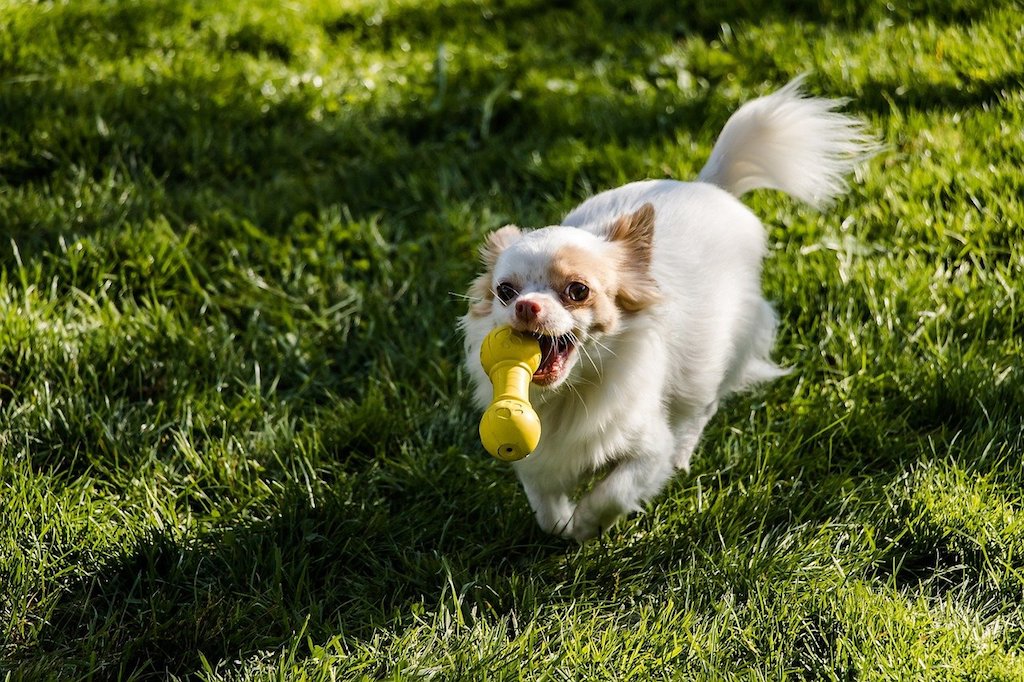
It is recommended that Chihuahuas get at least 30 minutes of exercise daily. They love to run and play in the yard, and enjoy short walks. Chihuahuas are very sensitive to the cold, and can quickly become hypothermic in freezing temperatures. A warm coat can help prevent loss of body heat, and it is advisable to consider exercising indoors on cold days.
Special consideration must be taken to secure your yard to keep your Chihuahua safe and secure. Because of their tiny size, Chihuahuas can sneak through small gaps in the fencing which larger dogs would find impossible. They are also at risk of predators, with stories of Chihuahuas being plucked from back yards by large birds such as hawks.
History
The Chihuahua is a native of Mexico and take their name from the state of Chihuahua. The origins of the Chihuahua are surrounded by many myths. It is believed that the ancestors of the Chihuahua were spirit guides, protecting souls as they travelled through the underworld.
The most common theory is that the Chihuahua may be a direct descendant of the Techichi – a breed of dog kept by the ancient Aztec and Toltec civilizations. These civilizations collapsed but the Techichi remained in tiny villages in Mexico, where it was developed into the smaller Chihuahua we know and love today.
Chihuahuas are the original ‘toy’ breed – not bred to work, but to look beautiful and amuse their owners! American tourists first encountered this tiny breed in the mid 1800s, and began taking them home to keep as pets. Their popularity quickly increased and the American Kennel Club recognised the Chihuahua as an official breed in 1904.
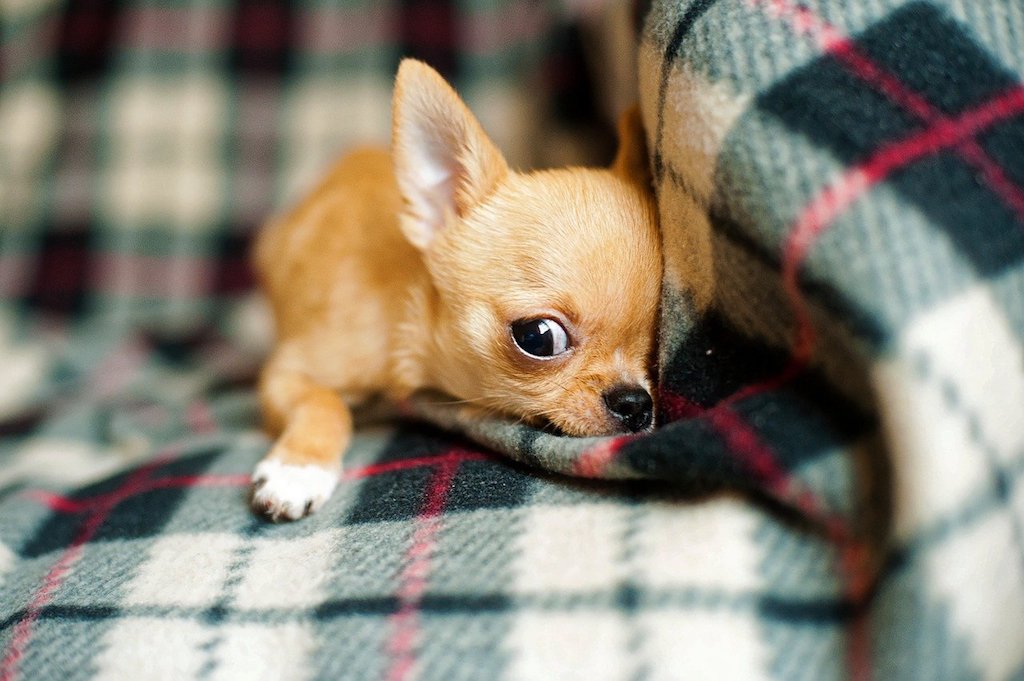
Interesting facts
- In 2013 a Chihuahua was officially recognized as the world’s smallest living dog by the Guinness Book of World Records. At only 3.8 inches tall when fully grown, Milly the Chihuahua weighed less than one ounce when she was born and could fit into a teaspoon!
- Chihuahuas have the largest brain size in relation to body dimension of all dog breeds. They are also born with a soft spot on top of the skill called a molera – just like human babies.
- Chihuahuas are born with floppy ears. They don’t become erect until about 6 months of age, and some Chihuahuas ears stay floppy forever – how cute!
- Packs of wild Chihuahuas have been seen roaming in certain parts of the US!

